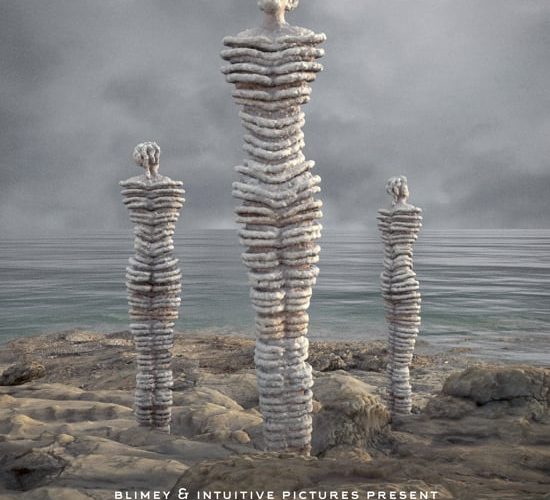Once Upon a Sea (Lavy, 2021)
Once Upon a Sea comes touted as “an extended reality” created by Adi Lavy.
Virtual Reality videos are still new enough that we haven’t yet developed the critical language with which to describe them. As a newcomer to the VR experience — I bought my Oculus Quest 2 a few weeks ago — I’ve mostly learned that “immersive” is the adjective of choice to sell the VR experience, be it game, narrative film, or documentary.
I approached Once Upon a Sea with the expectation that the “immersive” quality of VR would be particularly useful for documentary films. It is…sorta.
The key difference between a VR video and a traditional video is the 360 degree nature of the screen. While wearing my Oculus headset, I can use my controls to move my head and see the landscape in all directions. That allowed me many viewing choices, but it undercut the power of the filmmaker to direct my attention to a particular image. Suddenly, composition became less important. Editing, conversely, became more of an issue.
In a video game, which is the most common VR experience, the screen change is controlled by player movement, leaving the immersed person with ample opportunity to study or contemplate the images in all directions before moving on. There were several times in the film, however where I was looking at something behind me only to have the entire image cut abruptly. I was now looking at the scene 180 degrees behind a new shot.
I imagine that as directors get more adept at the VR format, there will be many more long — even static — takes. I would have appreciated the immersive qualities of Once Upon a Sea even more if I had the camera had been stationary and I just had twenty-minutes to wander around and explore the landscape.
That said, the landscape itself is interesting, and the VR experience is a unique way to let the viewers experience the environmental damage in the area. The film’s use of “photo-based 3D models” tantalizes those who have the technology to benefit from it. For now, however, it left me thinking we will see more VR extras to traditional narrative films than actual VR films themselves. I imagined photo-based 3D models of the Titanic or the bottleneck in 300 or Wakanda or Westeroos…videos that let me wander around the landscapes where stories I knew took place rather than ones that tried to place me in the middle of the story while it was happening.
Once Upon a Sea was part of the Cannes XR showcase and had its North American premiere at SXSW this week.

